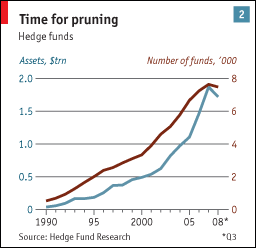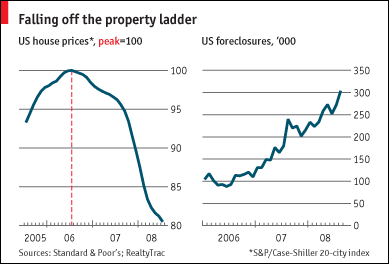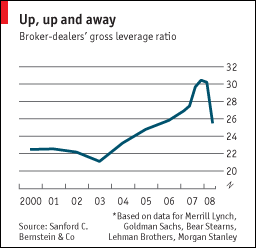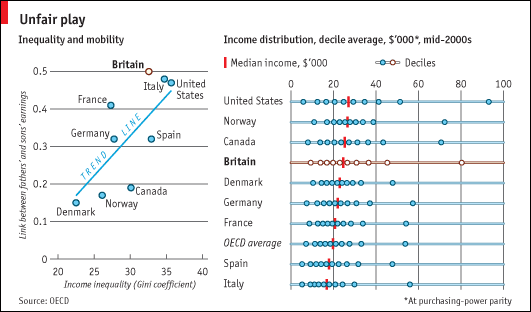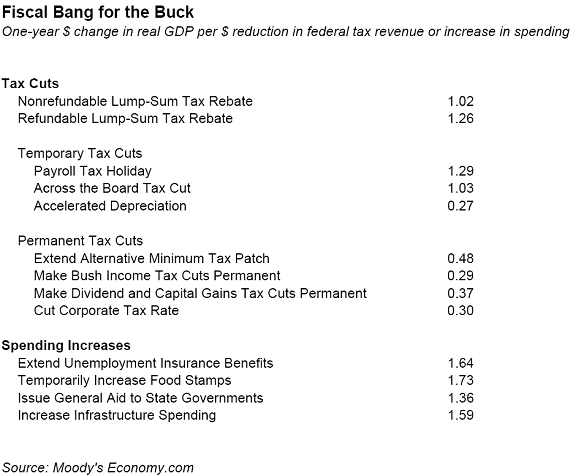Copyright Notice: We don't think much of copyright, so you can do what you want with the content on this blog. Of
course we
are hungry
for publicity, so we would be pleased if you avoided plagiarism and gave us credit for what we have written. We
encourage you not to impose copyright restrictions on your "derivative" works, but we won't try to stop you. For the legally or statist minded,
you can consider yourself subject to a Creative Commons Attribution License. |
|
current posts | more recent posts | earlier posts Here [PDF] is a legal opinion on trademark law that is well worth reading. [E.S.S. Entertainment v. Rockstar Games, Inc.]
The opinion contains several gems such as:
"A reasonable consumer would not think a company that owns one strip club in East Los Angeles, which is not well known to the public at large, also produces a technologically sophisticated video game like [Grand Theft Auto] San Andreas."
...
"[F]ans can spend all nine innings of a baseball game at the hot dog stand;
that hardly makes Dodger Stadium a butcher's shop."
While the court's opinion is, of course, correct, I am continually amazed that the legal system still allows IP attorneys to even make such frivolous claims without being sanctioned. [Posted at 11/05/2008 04:50 PM by Justin Levine on IP Law  comments(0)] comments(0)] In Bessen & Meurer latest patent study (" Do patents perform like property?," Academy of Management Perspectives, pp. 8-20 (August 2008)), the authors conclude: " intellectual property rights have at best only a weak and indirect effect on economic growth" and "The direct comparison of estimated net incentives suggests that for public firms in most industries today, patents may actually discourage investment in innovation."
The entire conclusion is below. See also Keith Sawyer's post, Do Patents Increase Innovation?, who note: "In 1999, for example, the total profits from patents in all U.S. public firms (excluding pharma) was about $3 billion, but their litigation costs associated with those patents were a whopping $12 billion!"
The historical evidence, the cross-country evidence, the evidence from economic experiments and estimates of the net benefits of patents all point to a marked difference between the economic importance of general property rights and the economic importance of patents or intellectual property rights more generally. With the cross-country studies in particular, the quality of general property rights institutions has a substantial direct effect on economic growth. Using the *same* methodology and in the *same* studies, intellectual property rights have at best only a weak and indirect effect on economic growth.
The research also suggests a reason why patents differ from general property rights in motivating economic growth overall: the positive effects of patents appear to be highly contingent. Differences in technology and industry seem to matter a lot for twentieth century R&D managers and also for the innovative performance of nineteenth century world's fair exhibitors. Some results from the cross-country studies suggest that less developed countries have a harder time realizing benefits from patents or that countries that participate actively in international trade may benefit more.
Some of these differences arise because of differences in the relative costs and effectiveness of alternatives to patents. Patents may contribute more to economic growth in the pharmaceutical industry than they contribute in electronics industries because the latter can more effectively earn returns on innovation through lead time advantage, sales of complementary products and services, etc. Other differences may arise because of subtle differences in patent institutions. During the nineteenth century, the US patent institutions performed differently (and perhaps better) than their British counterparts. Patents are likely to work better in the pharmaceutical industry because patents on chemical entities have much sharper boundaries than, for example, patents on software.
Of course, the economic effectiveness of all forms of property depends on details of the supporting institutions this is evident from the disparate growth paths of Soviet Bloc economies. But the economic effectiveness of patents may be much more sensitive to the details of the relevant institutions than are general property rights. Perhaps this is because patent law may be much more specialized, complex and sophisticated than, say, real property law and, so, effective institutions may be more difficult to develop and maintain.
In any case, the empirical economic evidence strongly rejects simplistic arguments that patents universally spur innovation and economic growth. The direct comparison of estimated net incentives suggests that for public firms in most industries today, patents may actually discourage investment in innovation.
[Posted at 11/03/2008 01:52 PM by Stephan Kinsella on Patents (General)  comments(10)] comments(10)] In his helpful alert, Stephen Spear may have overstated the case "that business method and software patents are probably done for" in light of the Federal Court of Appeals decision in the Bilski case. It marks a significant step back from the brink of unhinged insanity in terms of patent policy, but it still isn't the true and thorough reformation that is needed.
However, everyone visiting this site should do themselves a favor and read Judge Mayer's sublime dissent in the Bilski case - arguing that the majority decision doesn't go nearly far enough in curtailing patent abuses.
Mayer's dissent starts on page 98 of this PDF document and continues on through page 122.
A few small tastes of an opinion that is worth posting in its entirety:
There are a host of difficulties associated with allowing patents to issue on methods of conducting business. Not only do such patents tend to impede rather than promote innovation, they are frequently of poor quality. Most fundamentally, they raise significant First Amendment concerns by imposing broad restrictions on speech and the free flow of ideas.
...
Business innovations, by their very nature, provide a competitive advantage and thus generate their own incentives.
...
It is often consumers who suffer when business methods are patented...Patented products are more expensive because licensing fees are often passed on to consumers...Further, as a general matter, "quantity and quality [of patented products] are less than they would be in a competitive market."
Patenting business methods makes American companies less competitive in the global marketplace.
Read the whole thing! [Posted at 11/03/2008 01:34 PM by Justin Levine on IP Law  comments(0)] comments(0)] In response to requests I've made some improvements on how the blog works. You can click the title "Against Monopoly" to get back the front page and the titles of posts now have the permalink (also available as always at the bottom of the post).
For authors - there is a new feature that enables you to receive email notification when you receive comments on your posts. Just make sure that your that for each post you set the public email address to your real email address and put an asterisk after your email address. So, for example, in the email field I put
david@dklevine.com
nothing will happen, while if I put
david@dklevine.com*
then for that post I will receive email notification of any comment that is submitted to that post. [Posted at 11/02/2008 08:50 AM by David K. Levine on Innovation  comments(8)] comments(8)] When I saw the title of this Cato podcast-- "Intellectual Property Versus Reason" (October 20, 2008)--I was hopeful and interested. Then I noticed it's an interview with the Nobel-winning, er, physicist Robert B. Laughlin, author of the new book, The Crime of Reason and the Closing of the Scientific Mind. Physicists and engineers are notoriously scientistic (see Yet More on Galambos; also Galambos and Other Nuts, Libertarian Activism--comments and C.P. Snow's "The Two Cultures" and Misesian Dualism). But, still, the title implied Laughlin thinks IP is, well, unreasonable (Cato scholars' IP positions seem to be mixed and largely utilitarian).
As I listened to the 16-minute podcast, I had a succession of impressions. For the first 6 or so minutes, I could not tell whether Laughlin was pro- or anti-IP. I know a bit about IP but I was not even sure what he was talking about much of the time. Oh, Laughlin is articulate enough--he speaks slowly, ponderously, and often pauses dramatically, as if struggling to pick just the right Deep Thoughts in response to Serious Questions--and even pronounces a French word or two properly. But soon it becomes obvious that his views on IP are just a mess, and he is, indeed, infected by the scientistic virus that physicists are susceptible to.
It soon become clear that Laughlin believes there is a tension between economic prosperity (which requires IP) and "human rights" (in particular the "right to learn," which IP impinges on). At first he seems to be very concerned that human rights will "give way" to IP and economic prosperity--even pessimistic about this--even while he himself seems to grant that we ought to be concerned about prosperity--and, thus, IP. So he's pessimistic that IP is infringing the human right to learn, yet he not only thinks nothing can or will be done to stop this--after all, we've now entered the information age, where IP rights are even more important to economic prosperity--he even seems to think that we should not abolish IP. We need to "supply the data" to "the legislature" (Congress), and achieve the right "balance", even though he admits he doesn't know what the right solution even is--it's "above my pay grade." Naturally, then, he doesn't blame the Congresscritters for how they have voted to date on IP issues, whether pro or con; their efforts are sincere and based on the best data possible. One wonders why he is depressed, or why he even wrote a book. I guess Nobel laureates can sell just about anything they slap their name on, which is reason enough.
I can't bring myself to read his book now, but from this interview it seems apparent that he holds a number of erroneous views: that both the state and the democratic process are legitimate, and that legislation is the right way to make law; that IP is pro-property rights; that IP is necessary for and promotes prosperity; that there is a conflict between human rights and economic rights; not to mention his implicit scientism. In his confused attempt to weigh in on legal and economic and policy issues he reminded me a bit of physicist Fritjof Capra's New Agey The Tao of Physics (hence the title of this post).
A few other things to note: from the Cato description of his book:
"Though we may feel inundated with information today, Nobel laureate Robert Laughlin argues that intellectual property laws and government security demands are increasingly restricting access to the most useful information. Government rules and businesses' legal pressures to sequester information threaten the development of new knowledge, he says. The rights of free people to investigate their world are threatened. Laughlin's fresh perspective and light, sometimes whimsical, bent do not mask the central warning of his readable book: that we risk bequeathing our heirs a world where knowledge is criminalized and our intellectual tradition of unfettered inquiry is lost."
So he sees IP as "criminalizing" knowledge ... yet is not completely opposed to it. So we need only a reasonable degree of criminalization of knowledge. I guess Laughlin chooses IP over reason... sometimes.
Publishers Weekly (from the Amazon.com listing) identifies some of the weaknesses in Laughlin's book:
"The provocative premise of this short book is that even as we appear to be awash in information, governments and industry are restricting access to knowledge by broadening the concept of intellectual property to include things as diverse as gene sequences and sales techniques. According to Laughlin, the right to learn is now aggressively opposed by intellectual property advocates, who want ideas elevated to the status of land, cars, and other physical assets so the their unauthorized acquisition can be prosecuted as theft. With examples drawn from nuclear physics, biotechnology and patent law, Laughlin, a Nobel laureate in physics, paints a troubling picture of a society in which the only information that is truly valuable in dollars and cents is controlled by a small number of individuals. But while Laughlin poses urgent questions, he provides neither in-depth analysis nor potential solutions. Many intriguing arguments--for example, that electronic technologies such as the Internet, which inundate us with useless information, are not instruments of knowledge dissemination at all but agencies of knowledge destruction--are offered but none are usefully explored.
So Laughlin views IP as "restricting access to knowledge"--if he instead viewed IP as an infringement of property rights, he would have a harder time making the mistake of thinking IP is on the side of economic prosperity and property rights. The "right to learn," whatever that is, is not any primary kind of right, and would seem to be jeopardized by government education and propaganda more than by patent and copyright. Again, IP undercuts and infringes property rights, and harms innovation (see here, here, here, here)--if he realized this, he would not set up the false alternative of prosperity versus human rights. And the idea that IP is more important in the information age is also flawed. [Posted at 10/31/2008 11:53 AM by Stephan Kinsella on Is IP Property  comments(15)] comments(15)] Tim Lee has a post on Freedom to Tinker that may be of special interest to economists. He suggests that Wikipedia may be a public good subject to a free-riding benefit rather than cost. That is with standard public goods, we think of free-riders as people who good institutions would make into contributors. Tim suggests that for certain kinds of projects increasing the number of free-riders (the audience size) is good, because it also increases the number of contributors. Wikipedia for all its faults is interesting, because unlike say the free-software movement, it is driven entirely by volunteers. Maybe someone who knows more about Wikipedia than me can answer the question of whether these volunteers are anonymous, or whether the are working in hopes of recognition. [Posted at 10/31/2008 07:56 AM by David K. Levine on Innovation  comments(5)] comments(5)] Big victory today at the CAFC! (Finally)
Via Slashdot, the Court of Appeals for the Federal Circuit, which reviews all patent disputes in the U.S. now, has ruled in the In Re Bilski case that the U.S. Patent Office's rule that patents must meet the "machine or transformation" test -- i.e. ideas must be embodied in an actual product (a machine) or engender an actual physical transformation (as, for example a chemical or biological process) -- in order to receive a patent.
In practice, what this means is that business method and software patents are probably done for. [Posted at 10/30/2008 04:04 PM by Stephen Spear on Software  comments(11)] comments(11)] [Posted at 10/29/2008 11:02 AM by John Bennett on Against Monopoly  comments(0)] comments(0)] For good or ill none of us have a monopoly on the truth. I don't remove or censor posts or comments except for some obvious spam. I realize that it often seems during a heated debate that whoever we are disagreeing with must be being deliberately obtuse not to understand our clear and obviously correct arguments. Anyone who know me knows I feel that way. And of course it is natural if we feel we are being called names to respond in kind. But can I ask posters to try to dial back the personal rhetoric? I think things are escalating to the point that we are scaring readers more than appealing to them. The more rational side of me also argues that neither side is likely to win converts to their point of view by calling people names. [Posted at 10/26/2008 09:02 AM by David K. Levine on Against Monopoly  comments(12)] comments(12)] I've been spending a lot of time the last few weeks learning about this financial crisis and financial crises more generally. I've heard Rolf Luders from Chile talk about how they solved their financial crisis; and I've heard Takatoshi Ito from Tokyo University explain how Japan failed to solve theirs. I've also read Chari, Christiano and Kehoe's examination of data looking for links from the financial sector to the real economy.
Here is a summary of what I think:
Chari, Christiano and Kehoe's paper ends with a plea for policy makers to share their data with the public. I agree with them entirely. Our two top policy makers Poulson and Bernanke have been acting as if the world is coming to an end without explaining why. Their behavior is the worst behavior by central bankers I have seen during my career as an economist. There have been days of complete chaos and panic on the stock market, and at no time have either of the two bothered to appear on television to explain to the general public what they think is going on. Bernanke speaks to no one and Poulson only to bankers. The two of them have indicated at various times that the problem is so severe that if things in the financial sector aren't fixed within periods as short as a day or a week the economy will collapse. They have never come close to giving an adequate explanation of why they have these beliefs. Two explanations come to mind: they don't know what they are doing, the conclusion that I and I think the markets have reached, or that they know something we don't know. If it is the latter it is long past time they explain what it is.
Academic economists have pored over the public data and have concluded that there is both a crisis in the financial sector and the beginning of a recession. The only obvious linkage between the two is that the recession has caused asset prices to fall putting enormous stress on the financial sector. Poulson and Bernanke apparently believe that the financial sector is either causing or aggravating the recession.
Chari, Christiano and Kehoe have produced the kind of report the Fed should have produced months ago. Nobody disagrees that there is stress in the financial sector. The question is why we think there are linkages to the rest of the economy. People have gone around making assertions ranging from the absurd (GM can't sell cars because it can't borrow money) to things that appear to be merely wrong (credit in the non-financial sector is drying up). Why has no U.S. government agency tried to provide clear careful reports about what is going on? Everything I have seen has been either produced by bankers in the private sector or the IMF. Most of the stuff, for example by the IMF, I can only describe as highly convoluted. Chari, Christiano and Keho seem to have approached the problem in a straightforward way. If the problem is a big one, it shouldn't take particularly esoteric forms of measurement to identify it.
Some people at the Fed argue that they receive data under confidentiality agreements that make it impossible to make public. Chari, Christiano and Kehoe and I are not pleading for proprietary data to be made public in whole lots. I'm sure that summaries can be made public in a useful way. If the private data simply says the same thing as the public data in a more detailed way: the Fed should say that in a clear way so that the (widespread) idea that Bernanke and Poulson are seeing some sort of data that indicates the opposite of what every one else sees can be put to rest.
I have more to say on the subject of data than that. When I was at the Minneapolis Fed on Friday I tried to get some bond rating data. It turns out this requires a subscription that the Minneapolis Fed does not have. Frankly it is pretty absurd that a government agency charged with regulating the banking sector has to pay to get rating agency data. But I'll say more than that. The Fed long ago should have gone in and demanded to see the balance sheets of banks and if there was a lemons problem tried to solve it the obvious way by telling the world who the losers and winners were. I understand in normal times the Fed and Treasury is deferential to the sector it regulates. The idea that these guys need $700 billion of public funds to bail them out, but can't reveal secrets by opening their books to the public is offensive.
As to what is really going on: It has seemed to me since about 2006 when the price of oil skyrocketed that a severe recession was not an unlikely outcome if the price rise was due to anything other than a short-term production hitch. Short term elasticity of output for commodities being what they are, prices are very sensitive to demand. As the price skyrocketed on expectations of future growth, now they are dropping on expectations of future lack of growth. It will require a 50% further decline in the price of oil to get it back to the peak price during the decade of 1990-2000. Nobody can say for sure that its "all oil" or "all financial" causing the recession. But there is at least as much reason to believe it is oil as financial.
So what is my creative plan for dealing with the mess? The goal seems surely to be first and foremost to avoid doing things that will make things worse, and second not inventing new and crazier plans every day - as Poulson spent several weeks doing - but to try to understand what plans might have actually worked in the past. In the last several weeks I've learned what did work in Chile and what didn't work in Japan. There is evidence in both cases that fixing the banking sector led to recovery of the real sector - although as usual cause and effect are hard to distinguish: the reforms may have worked because the real sector was recovering anyway. But there is no reason not to fix the financial sector. We know what the problem is: allowing failed managers of zombie banks to maintain fictitious balance sheets. As long as this continues nobody is going to be eager to lend to the banking sector. The solution is straightforward - the managers who incurred the losses need to be fired, and the losses clearly assigned to share-holders, bond-holders, and tax-payers. This is what the private sector would do in the absence of government regulation. It can be done in the current regulatory regime by forcing banks into bankruptcy by enforcing existing regulations (i.e. mark to market enforced ruthlessly), but bankruptcy proceedings are not an expeditious way to restructure the banking sector. In Chile they nationalized the banks, fired the managers, restructured the debt apportioning the losses, then sold the newly recapitalized banks back to the private sector. If we want to fix the financial sector here we need to do the same. Or we can follow the Japanese model - spend $400 billion buying preferred share in banks, and then wait and pray. The Japanese waited nearly a decade before they finally gave up and passed a law offering the opportunity to accountants who claimed firms were solvent to go to jail when it turned out they weren't.
[Posted at 10/26/2008 08:56 AM by David K. Levine on Against Monopoly  comments(5)] comments(5)] current posts | more recent posts | earlier posts
|
|



|


